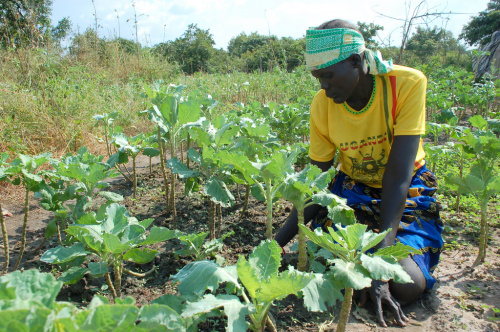RIO DE JANEIRO, Brazil (09 July 2012)_If a scheme to pay developing countries to reduce carbon emissions by slowing deforestation is to have legitimacy, land tenure needs not just to be clarified – but to be clarified in a way that respects the rights of local communities, according to experts from the Centre for International Forestry Research (CIFOR).
The principle behind Reducing Emissions from Deforestation and Forest Degradation, or REDD+, is to reward people who are sequestering carbon or avoiding deforestation, to compensate them for lost opportunities, and to suspend payments if they don’t follow through on their promises, said CIFOR scientist Anne Larson.
“Land tenure is important because you need to know who you’re compensating,” she said.
“And you need to know who to hold accountable.”
Presenting at the International Society for Ecological Economics Conference on the sidelines of Rio +20 in Brazil, Larson said while it is now widely recognised that land tenure matters for REDD+, on its own simply clarifying tenure is not enough.
“It’s the issue of recognising rights. Clarification for whom really matters,” she said.
“Clarifying tenure for REDD+ could just mean giving all the forest to a private land-holder and solving the problem – but firstly, that won’t solve the problem, and secondly there are serious equity issues in terms of the people already living in the forest, their livelihoods and their customary rights over time.”
But she says it is not only for equity reasons that tenure needs to be resolved.
“Some argue that if rights aren’t respected there will be protests, there will be sabotage, there will be risks to investors in termRios of getting funding for REDD+ and getting it off the ground.”
Larson’s work on land tenure draws on CIFOR’s Global Comparative Study on REDD+ and has also been published in a new CIFOR publication, Analysing REDD+.
Without land tenure rights for people living in forests, Larson says, REDD+ will lack the legitimacy it needs to work.
But resolving the issue is not easy.
“The biggest problem regarding tenure for REDD+ is that it’s expensive. It’s expensive, it’s hard to do logistically, it’s messy,” Larson said.
“Another problem is precisely the complexity, and the tendency of governments and titling agencies to want to simplify. For REDD+ that would be easier but that doesn’t necessarily work for local people and their livelihoods.”
Larson says it is especially complex in areas with overlapping land rights systems.
“It is particularly apparent in some parts of Africa where, for example, different people may have rights during different seasons: one family may have rights to the fruits on the tree, and someone else has rights to the firewood, perhaps pastoralists come in for a month or two and have the right to graze the lower branches,” she said.
“There are all sorts of overlapping rights, so when you give a title to one person you have basically denied the rights to all those other people.”
“And you may be cutting off safety nets, in particular when you’re dealing with poor rural people.”
Larson says resolving land tenure issues in a way that respects rights at the grassroots level would open up a lot more options for REDD+, as well as ensuring the scheme is both fair and effective.
“If you don’t want to have poor people getting poorer, losing their land rights, losing the source of their livelihoods, not just for equity but because they may, in fact just start burning down the forest if they’re being left out or suffering at the hands of people who are promoting REDD+, whether those are investors or carbon cowboys – then land tenure matters, and I think it is something that has to be solved.”
We want you to share Forests News content, which is licensed under Creative Commons Attribution-NonCommercial-ShareAlike 4.0 International (CC BY-NC-SA 4.0). This means you are free to redistribute our material for non-commercial purposes. All we ask is that you give Forests News appropriate credit and link to the original Forests News content, indicate if changes were made, and distribute your contributions under the same Creative Commons license. You must notify Forests News if you repost, reprint or reuse our materials by contacting forestsnews@cifor-icraf.org.
